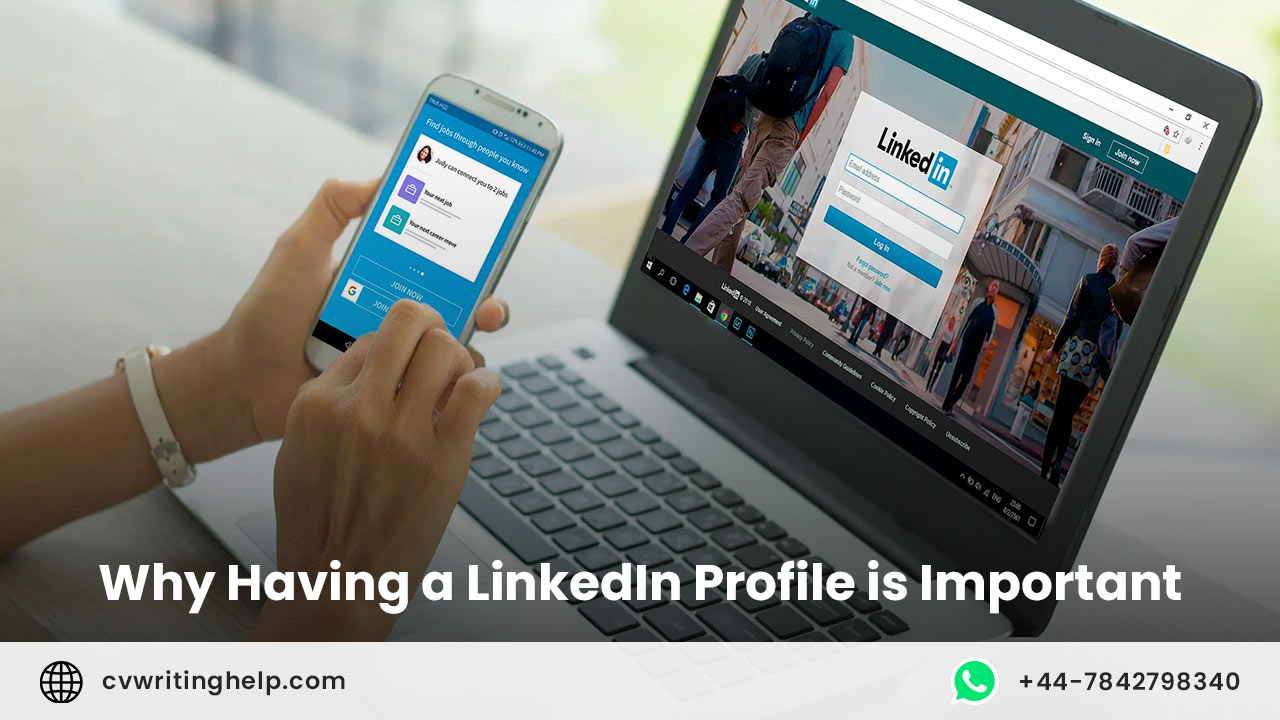In today’s digital age, having a strong online presence is essential, especially for professionals. One platform that has gained remarkable popularity is LinkedIn. But the question arises: Is a LinkedIn profile necessary? In this blog post, we will delve into the benefits and drawbacks of having a
Understanding LinkedIn

LinkedIn is not just another social media platform; it’s a professional networking site tailored for career-oriented individuals. Launched in 2003, LinkedIn has grown into a significant hub for professionals to connect, share, and build their careers. Here’s a closer look at what
- Networking Opportunities: LinkedIn allows users to connect with coworkers, industry leaders, and potential employers. This extensive network can prove invaluable for job searching or professional growth.
- Job Search Feature: LinkedIn has a dedicated job search section, providing users with the latest job postings relevant to their skills and expertise. Many companies post jobs exclusively on LinkedIn, making it a worthwhile tool for job seekers.
- Professional Portfolio: Your LinkedIn profile acts as an online resume. You can showcase your work experience, skills, recommendations, and even share articles or blog posts you've authored.
- Industry Insights: Through articles, posts, and updates from your connections, LinkedIn serves as a platform for sharing insights and staying informed about industry trends and developments.
While the platform offers a wealth of resources, it’s essential to understand the nuances of using LinkedIn effectively. From privacy concerns to the time required for active engagement, evaluating LinkedIn in your professional toolkit can help you make the most informed decision.
The Benefits of Having a LinkedIn Profile
Having a LinkedIn profile can be incredibly beneficial in today's professional world. It's more than just a digital resume; it’s a platform that connects you with countless opportunities and networks. Here are some key benefits to consider:
- Professional Networking: LinkedIn is a powerful tool for building professional relationships. You can connect with colleagues, industry leaders, and professionals from around the globe whom you might never meet otherwise.
- Job Opportunities: Many companies post job openings directly on LinkedIn, and recruiters often scour the platform for potential candidates. By having an updated profile, you increase your visibility to recruiters looking for individuals with your skill set.
- Showcase Your Experience: Your LinkedIn profile acts as an online portfolio, allowing you to display your work experience, projects, and achievements in a visually appealing way. You can even add multimedia elements that enhance your professional story.
- Industry Insights: Following companies and influencers in your field provides you with a steady stream of industry news and insights. This helps you stay informed and can spark useful discussions both online and offline.
- Skill Endorsements: Your connections can endorse your skills, lending credibility to your expertise. This validation can give you an edge in competitive job markets.
In summary, having a LinkedIn profile opens doors to connectivity, opportunities, and a broader understanding of your industry.
The Potential Drawbacks of LinkedIn
While LinkedIn has many advantages, it’s also worth considering some of the potential drawbacks. Being aware of these will help you navigate the platform more effectively. Here are a few concerns:
- Privacy Issues: Sharing personal information online always carries privacy risks. Your profile is visible to a wide audience, and this could expose you to unwanted attention or solicitation.
- Time-Consuming: Maintaining an up-to-date LinkedIn profile can be time-consuming. Engaging with connections, posting updates, and staying active requires continuous effort, which might not be feasible for everyone.
- Performance Pressure: With so much emphasis on networking, there can be an underlying pressure to ‘perform’ on the platform. You may feel compelled to constantly update your profile or garner endorsements, which could become overwhelming.
- Overemphasis on Connections: Sometimes, the number of connections becomes a priority over the quality of those relationships. This can lead to superficial networking rather than genuine connections.
- Potential Misinformation: Not everything shared on LinkedIn is accurate. There’s a risk of encountering exaggerated claims, misleading job postings, or networking opportunities that may not be genuine.
In conclusion, while LinkedIn can offer a wealth of resources for professional development, it’s important to be cognizant of its drawbacks and approach the platform with caution.
Who Should Consider Creating a LinkedIn Profile?
In today’s digital world, having an online presence is crucial, and LinkedIn is an excellent platform that caters to various groups of people. So, who exactly should consider creating a LinkedIn profile? Let’s break it down:
- Job Seekers: If you’re on the lookout for a new job or starting your career, LinkedIn can connect you with potential employers. It’s a great way to showcase your skills and experience.
- Professionals in Transition: Transitioning to a new industry or role? A LinkedIn profile can help in network expansion and showcasing transferable skills.
- Freelancers and Entrepreneurs: If you’re self-employed or running a business, LinkedIn can help you build your brand, find clients, and network with other professionals in your field.
- Students and Recent Graduates: For students or those just graduating, LinkedIn aids in connecting with alumni, finding internships, and gaining exposure to the job market.
- Networking Enthusiasts: If you love connecting and building professional relationships, LinkedIn is the perfect place to do just that.
- Industry Experts or Thought Leaders: If you want to share your knowledge and expertise, LinkedIn offers a platform for publishing articles and engaging with a professional audience.
In summary, if you fall into any of these categories, creating a LinkedIn profile would definitely enhance your professional presence and opportunities!
Alternatives to LinkedIn
While LinkedIn is a popular choice for professional networking, it’s not the only option out there. Depending on your needs, you may find alternative platforms that suit you better. Here are some you might consider:
| Platform | Best For | Key Features |
|---|---|---|
| Indeed | Job Seekers | Job listings and company reviews |
| Meetup | Networking and Events | Organizing and attending local professional events |
| Glassdoor | Company Research | Company reviews, salary information, job listings |
| GitHub | Developers | Project collaboration and sharing coding portfolios |
| Facebook Groups | Various Professionals | Networking and sharing industry news within groups |
Every platform has its strengths and caters to different audiences. It’s worth exploring these alternatives to see what aligns best with your career goals and networking preferences! Remember, the right platform can make all the difference in your professional journey.
Is a LinkedIn Profile Necessary? Evaluating the Benefits and Drawbacks
In today’s professional landscape, having a LinkedIn profile is often considered essential. This social networking site caters specifically to business professionals, helping them connect, showcase their expertise, and explore job opportunities. However, it is important to weigh the benefits and drawbacks of maintaining a LinkedIn profile to determine if it is truly necessary for your career aspirations.
Benefits of Having a LinkedIn Profile
- Networking Opportunities: LinkedIn allows users to connect with colleagues, industry leaders, and potential employers, expanding your professional network significantly.
- Job Search: Many hiring managers and recruiters utilize LinkedIn to find candidates, making it a valuable platform for job-seekers.
- Personal Branding: A well-crafted profile helps you establish a personal brand, showcasing your skills, experiences, and achievements.
- Industry Insights: LinkedIn offers valuable resources, discussions, and trends in various industries, helping you stay informed.
Drawbacks of Having a LinkedIn Profile
- Privacy Concerns: Sharing professional information online may expose you to privacy risks and unwanted attention.
- Time-Consuming: Maintaining a profile, making connections, and engaging with content can be time-intensive.
- Not Universally Used: In certain industries, other networking platforms or methods might be more effective than LinkedIn.
Conclusion
In conclusion, while a LinkedIn profile offers numerous benefits in terms of networking and job-seeking, it is essential to assess whether it aligns with your professional goals and industry preferences before committing to it.
 admin
admin








